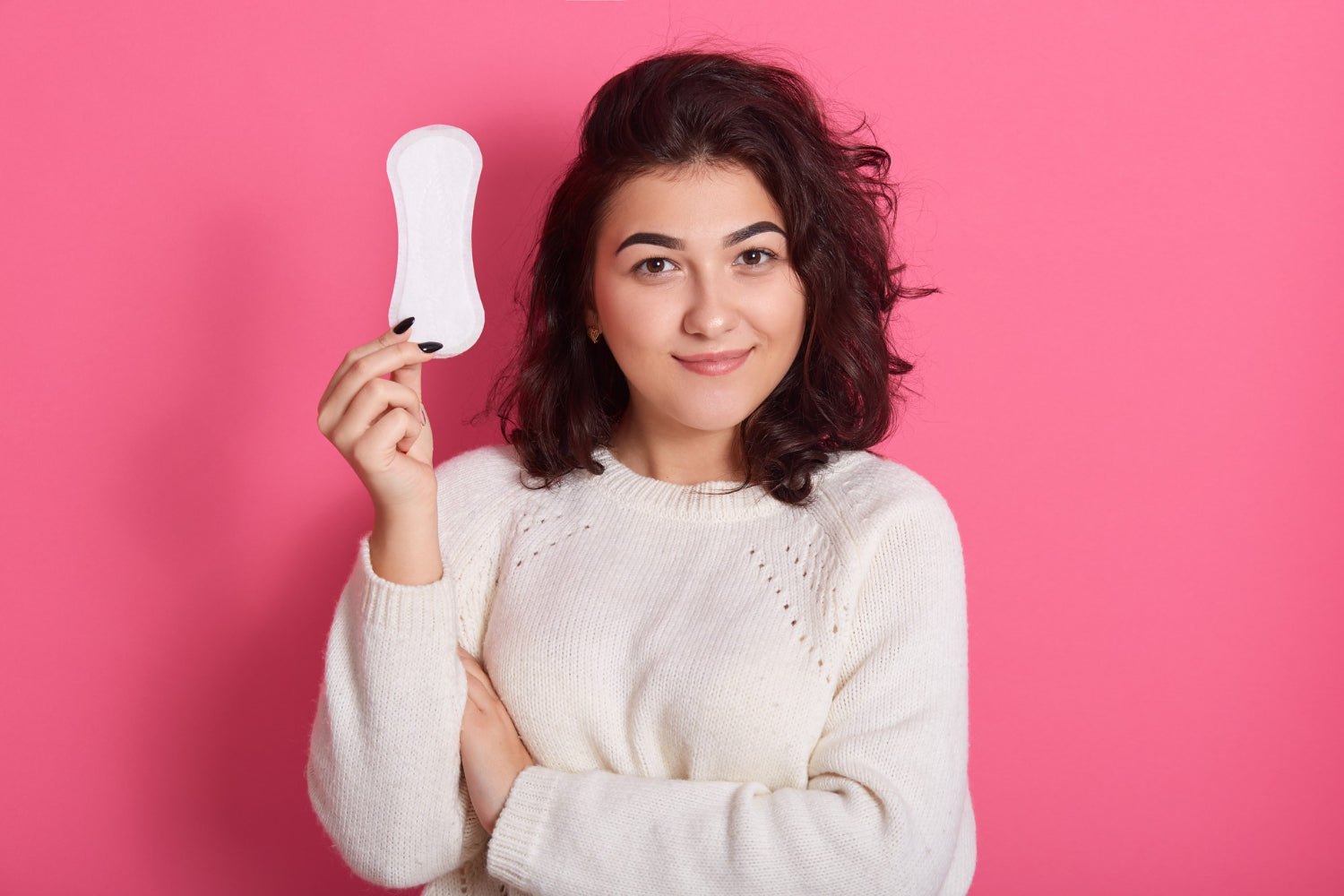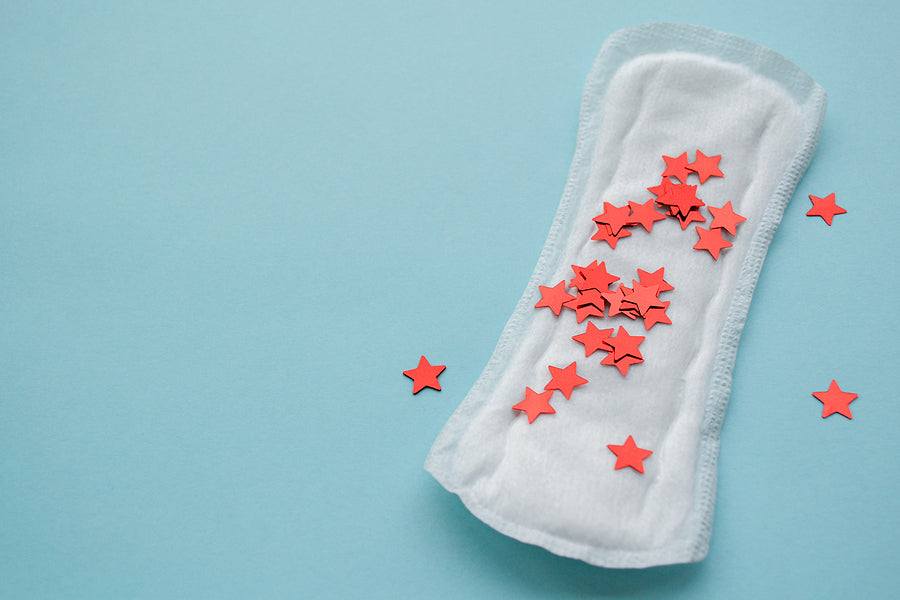Which Sanitary Pads Are Safe to Use: The Ultimate Guide

Every woman deserves a menstrual experience that is safe, comfortable, and free from health concerns. Considering the wide variety of sanitary pads available in the market, how do you know which ones are actually safe to use? Most conventional pads have been found to contain a myriad of chemicals, artificial fragrances, and synthetic materials that can cause issues beyond mere discomfort.
Fortunately, the world is changing, and people are becoming more aware of eco-friendly and safer alternatives. Most women forget that sanitary pads are not only about comfort but also related to their health.
In this guide, we’ll discuss which sanitary pads are safe to use, what the negative risks of using conventional pads are, and how to choose the right ones.
Why Choosing The Right Sanitary Pad Matters?
Synthetic pads are often laced with a variety of synthetic fibres, plastic, and other chemicals, which might enhance the experience but are bound to lead to irritation or rashes while messing with the body's hormonal balance.
A 2024 study published in the BJOG: An International Journal of Obstetrics & Gynaecology established a connection between phthalates and certain chemicals found in menstrual products and disruption of the endocrine system, leading to potential reproductive concerns.
The use of sanitary pads also puts the environment at risk. These pads have a plastic composition that decomposes after hundreds of years. So, when choosing which pads are safe to use, sustainable personal and environmental health is also an important component to look for.
What Are Traditional Pads Made Of?
A significant number of commercial sanitary pads rely on a combination of plastic components and chemical fragrances. Women's Voices for the Earth (WVE) reported that conventional sanitary pads are often filled with toxic substances as well as VOCs that can be harmful to the skin.
Thanks to women's growing concern regarding these harmful ingredients, they are increasingly asking which sanitary pads are safe to use. Read ahead and find out the answer.
Which Sanitary Pads Are Safe to Use?
Safe sanitary pads incorporate nature's touch, offer negligible toxic materials, and are composed of biodegradable elements that promote better health and environmental sustainability all at once. Safe pads are constructed from organic and plant-based materials, as opposed to synthetic fibres and chemical treatments, drastically lowering the risks of irritation and exposure to harmful substances.
The ultimate goal of a safe, sanitary pad is to get rid of toxic substances and artificial fragrances.
When considering which sanitary pads are safe to use, it is ideal to keep the following in mind.
● Organic materials: Corn fibre, bamboo fibre, or cotton grown without pesticides are used.
● Chlorine-free: Avoids dioxins from bleaching processes.
● Biodegradable & eco-friendly: Reduces plastic waste while being better for the planet.
● Fragrance-free: Artificial scents pose a risk of allergic reactions.
Not only does switching to safer pads enhance comfort, but it also guarantees a healthier menstrual experience.
The Best Materials for Safe and Comfortable Sanitary Pads
When selecting which sanitary pads are safe, it is highly recommended that you consider which materials are used to manufacture the pads. Organic and biodegradable options always have better breathability, absorption, and comfort.
Bamboo fibres are quickly becoming one of the most preferred materials in sanitary pads because of their antibacterial and moisture-wicking tendencies. Corn fibre is another super absorbent and biodegradable material that is amazing and safe. Organic cotton is now widely used because it is free of almost all pesticides, soft, and hypoallergenic, so people are not going to get rashes.
How to Identify Safe Sanitary Pads in Stores?
It can be difficult to navigate store shelves and select sanitary pads that are safe for use. However, a few key signs can help you identify a safe product.
To begin, always start with checking the list of components. It is best not to use pads that say vague things like 'fragrance' as those are masked with hidden chemicals.
Check for certifications like:
● Eco-certifications (biodegradable or compostable materials)
● GOTS or USDA Organic (ensures organic cotton is used)
● Fragrance-free & chlorine-free labels
● Dermatest® Guarantee Seal (dermatologically tested for skin safety)
Brands that carefully place components on the packaging and avoid chemicals add more trust and value for their users.
In a nutshell, the only effective way to use a sanitary pad is to focus on natural substances while avoiding harsh chemicals for health and environmental reasons.
Recommended Safe Sanitary Pad Brand – Peuriste Period Care Products
Peuriste™ Period Care Products is one of the product lines that has been highly recommended for individuals looking for safe and sustainable options for their menstrual hygiene. The Peuriste™ pads are dermatologically tested and have a seal of approval from the Dermatest® Guarantee Seal, which guarantees that the product is safe for sensitive skin. The pads are made from biodegradable bamboo and corn fibres.
Peuriste™ pads are trusted organic products and come with maximum comfort and protection without chlorine, synthetic fragrances, or any harmful chemicals, which makes you feel great about the environment.
The Bottom Line
Deciding which sanitary pads are safe to use can be a delicate issue when it comes to personal health and the well-being of the environment. The increasing demand for non-chlorine and unscented pads makes it evident that there is a need for more organic options.
Having women switch to safer menstrual hygiene means comfort, less irritation and more peace of mind. Your period care doesn't have to be tedious and filled with worry. Your health is a top priority.
It's time to embrace a healthier, safer, and more eco-friendly world of menstrual hygiene. Choose wisely, and focus on your well-being.
0 comments



